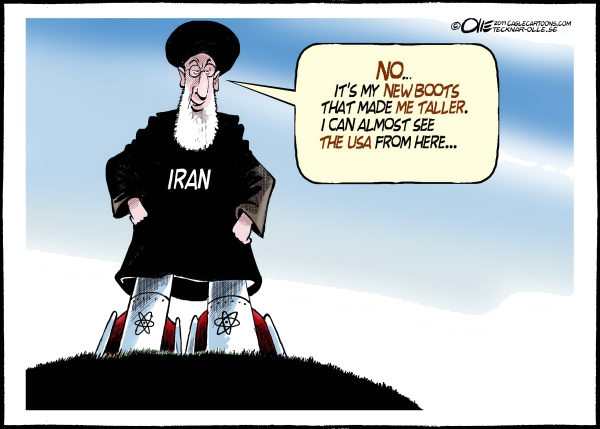
There's a growing push both inside and outside the administration to craft a way to acknowledge what many see as Iran's violations of the nuclear agreement without precipitating a crisis. Many worry that provoking the deal's collapse would not only risk an unpredictable and dangerous escalation but also hamper the international effort to confront Iran's regional expansion, support for terrorism and other mischief.
The question is whether Trump's national security team can persuade him to take a middle approach to a nuclear deal he campaigned against and clearly despises.
In a news conference last week, Secretary of State Rex Tillerson laid out his view that the Iran deal, formally called the Joint Comprehensive Plan of Action (JCPOA), must not dominate the administration's Iran focus. Tillerson admitted he disagrees with the president on whether the agreement can be salvaged.
"The JCPOA represents a small slice of the Iranian relationship," he said, adding, "We continue to have conversations about the utility of that agreement, whether it has utility, whether it doesn't have utility."
"[President Trump] and I have differences of views on things like JCPOA and how we should use it," he said.
Tillerson argued for certifying Iran's compliance when it came up in April and July. Both times, Trump yielded to Tillerson's view. But in an interview with the Wall Street Journal last week, Trump suggested he won't again.
"If it was up to me, I would have had them noncompliant 180 days ago," Trump said, adding that next time, "I think they'll be noncompliant."
The intelligence community believes that Iran's violations are minor and do not amount to a material breach. But the president's view is that Iran is in violation of the spirit of the deal, a senior White House official told me. Under the law Congress passed, the certification is subjective.
It's also unclear what follows non-certification. Trump could continue to waive nuclear sanctions on Iran or stop, effectively reimposing them. The White House admittedly does not know how the Iranian government would react to new sanctions, the official said.
Congress could also reimpose sanctions if Trump does not certify compliance. For many Republicans, having new negotiations with Iran would be nice but is not necessary. They agree with Trump that the deal is probably not worth saving.
"I don't think we get much benefit from the deal, so it collapsing doesn't trouble me all that much," said Sen. Tom Cotton, R-Ark. "The president's instincts on Iran are sound."
Tillerson and national security adviser H.R. McMaster argue that if Trump decides not to certify Iranian compliance, rather than scuttle the deal he can work to improve it and increase pressure on Iran in other ways, according to sources involved in the discussions.
CIA Director Mike Pompeo agrees with Tillerson and McMaster that Iran's regional threats are the near-term priority. Unlike Tillerson, Pompeo has never supported certifying compliance.
McMaster's team is leading an interagency policy review that is sure to call for expanding confrontation with Iran in places such as Yemen, Syria and Lebanon. The Iran deal, if in place, could be used as a pressure point while upping the ante on those fronts, experts argue.
Mark Dubowitz of the Foundation for Defense of Democracies and David Albright of Institute for Science and International Security have offered a middle approach they describe as "waive and slap," recommending that Trump not certify compliance but continue to waive nuclear sanctions while imposing new sanctions on nonnuclear issues.
Skeptics doubt the Trump team can thread the needle, considering that once Trump declares noncompliance, there's no way to predict what Iran will do. Also, tinkering with the deal or reimposing sanctions could cause new disputes with European allies and other partners, such as Russia and China.
"Even if they did a great job, it's serious risks," said Daryl Kimball, executive director of the Arms Control Association. "And for what gain?"
If Trump is determined to get the United States out of the Iran deal, nobody can stop him. But if the majority of his national security team gets its way, Trump will repeat what he did with Cuba: make minimal changes to the policy, then declare he has undone Obama's "terrible deal" and fulfilled a campaign promise.
And if Trump can't bring himself to certify Iran's compliance anymore, he should at least minimize the chances his decision will cause a diplomatic crisis and distract the United States from the mission of combating Iran's other nefarious activities.
Comment by clicking here.


 Contact The Editor
Contact The Editor
 Articles By This Author
Articles By This Author